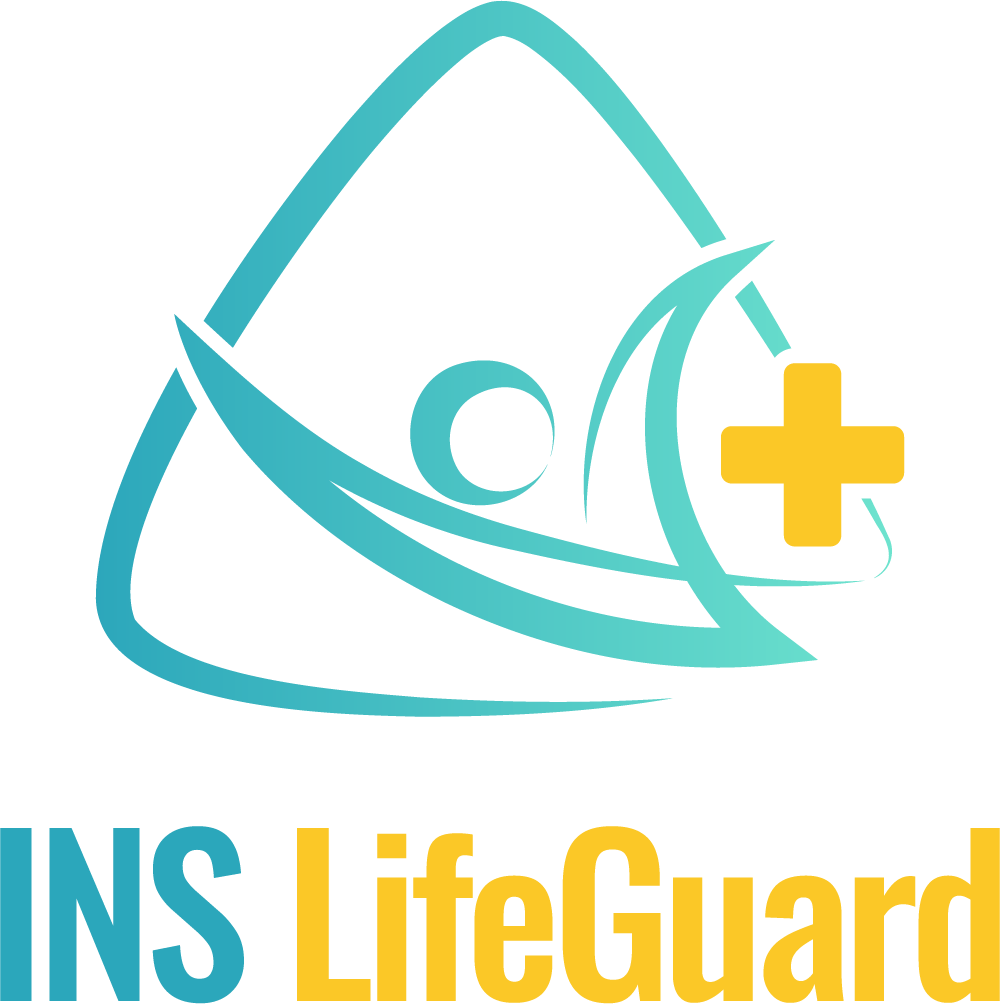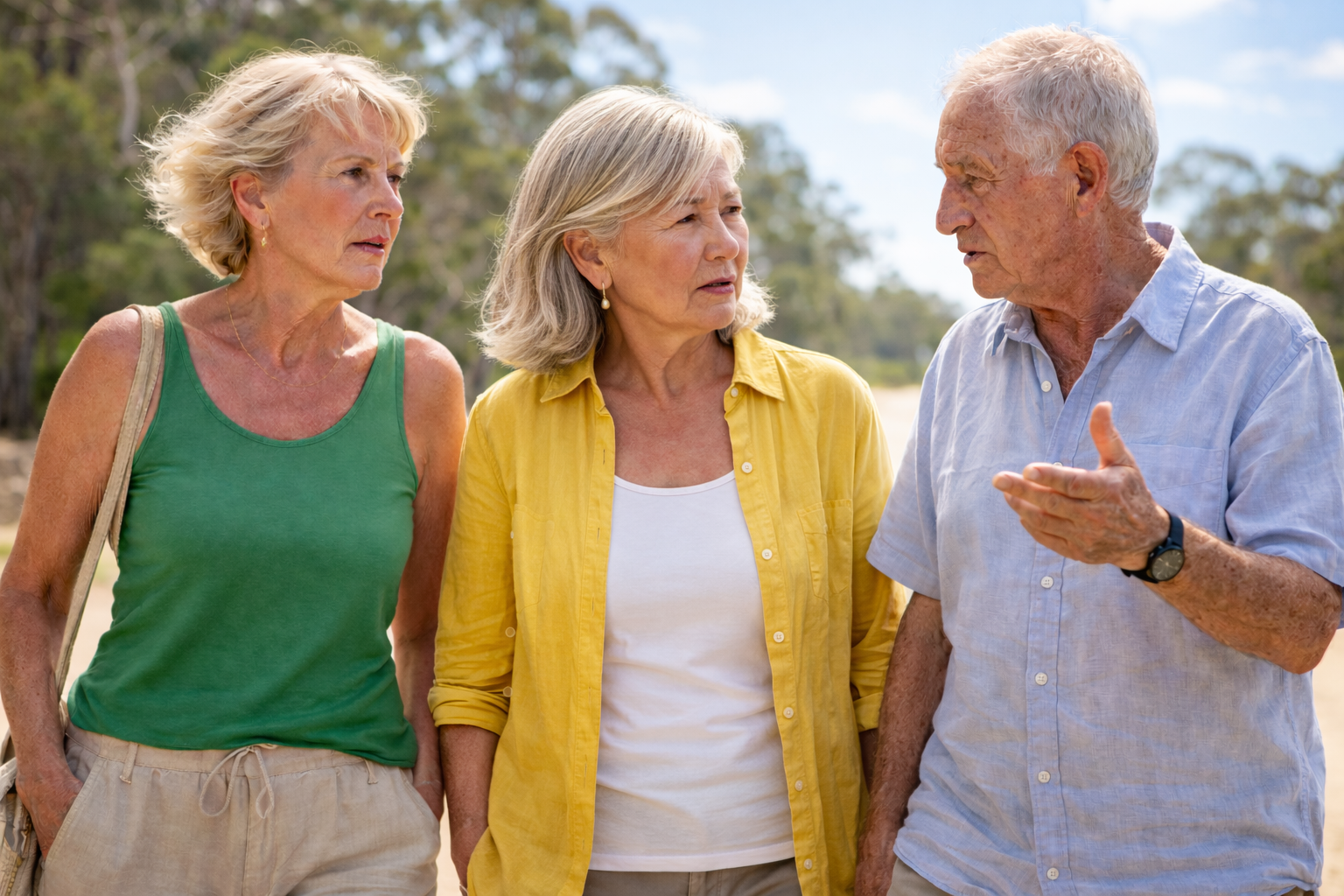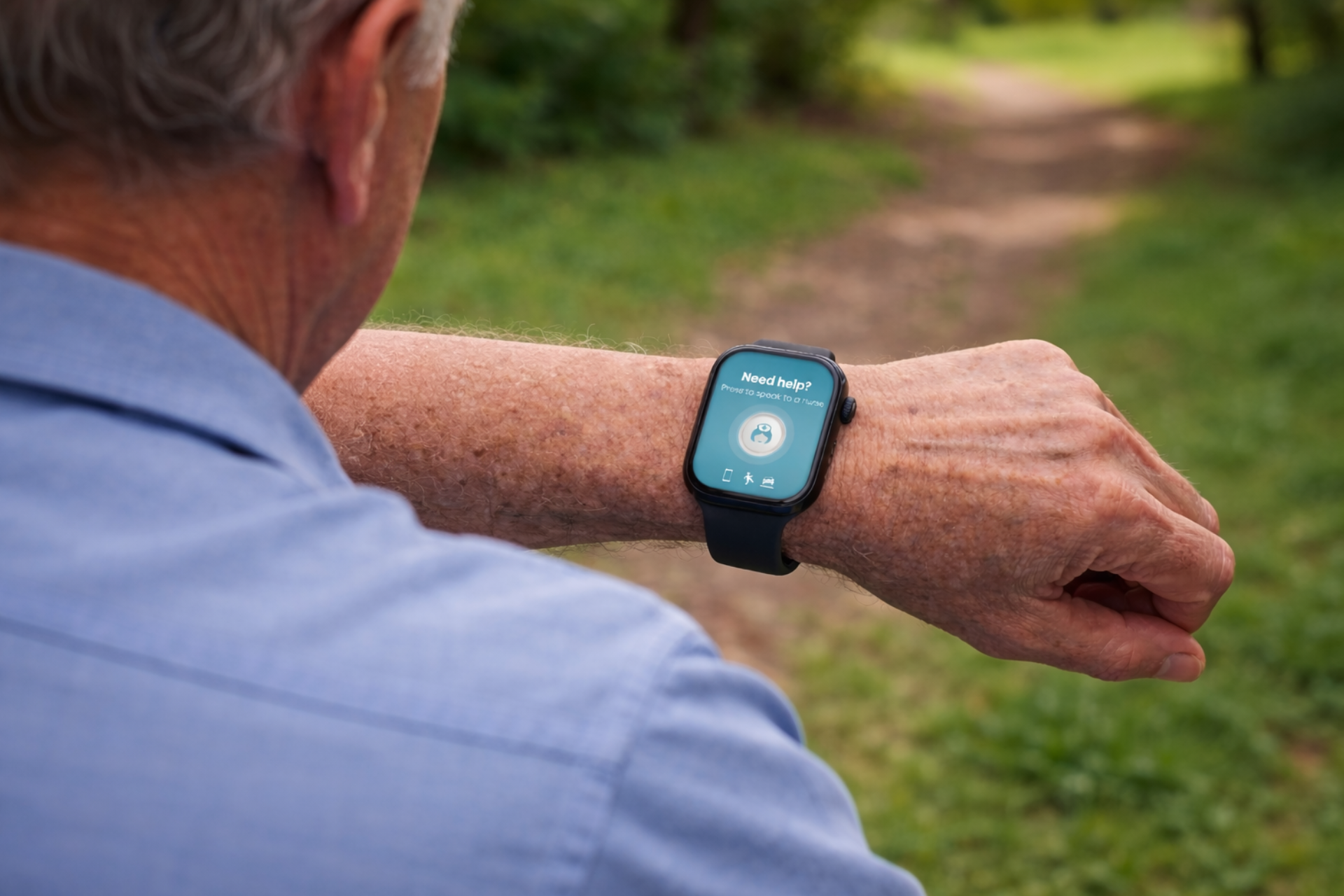Have a Question?
The 7 Amazing Benefits of Running For Seniors
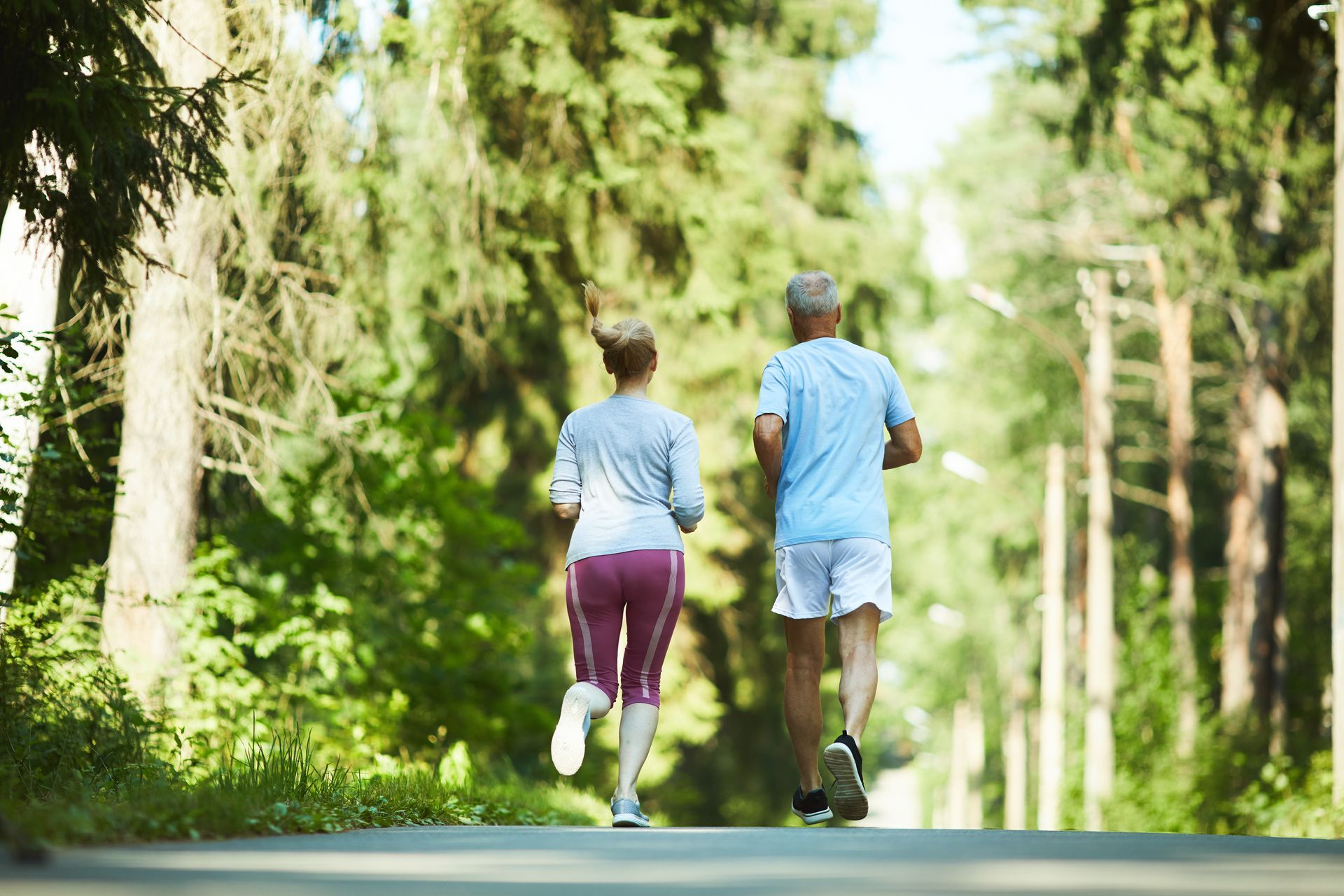
As our elderly loved ones age, maintaining their mobility becomes increasingly important. To keep them as active and independent as possible, they should be able to do activities that are safe for their age and physical condition. While there are misconceptions about ageing and running for seniors, it can actually be an excellent way to improve their overall health and well-being.
In this blog, we will substantiate if running is good for the elderly, delve into the benefits of running for seniors, provide helpful tips on how to start running at an older age and discuss the optimal running pace for seniors. Through this blog, you will be provided with all the information you need to help your elderly loved ones stay healthy and active through running.
Is running good for the elderly?
Many people believe that as people age, it is necessary to reduce movement and physical activity to prevent injuries. However, the truth is quite the opposite. In fact, engaging in an active lifestyle is essential for seniors to maintain their physical and mental health.
Running for seniors is a good way to stay physically active while acquiring numerous health benefits. In general, most seniors are safe to exercise, jog, and run. Even patients with chronic illnesses can safely engage in exercise, including those with conditions such as heart disease, high blood pressure, diabetes, and arthritis. However, elderly people should consult first with their doctor before starting any new exercise routine to ensure safety and avoid risks and injuries.
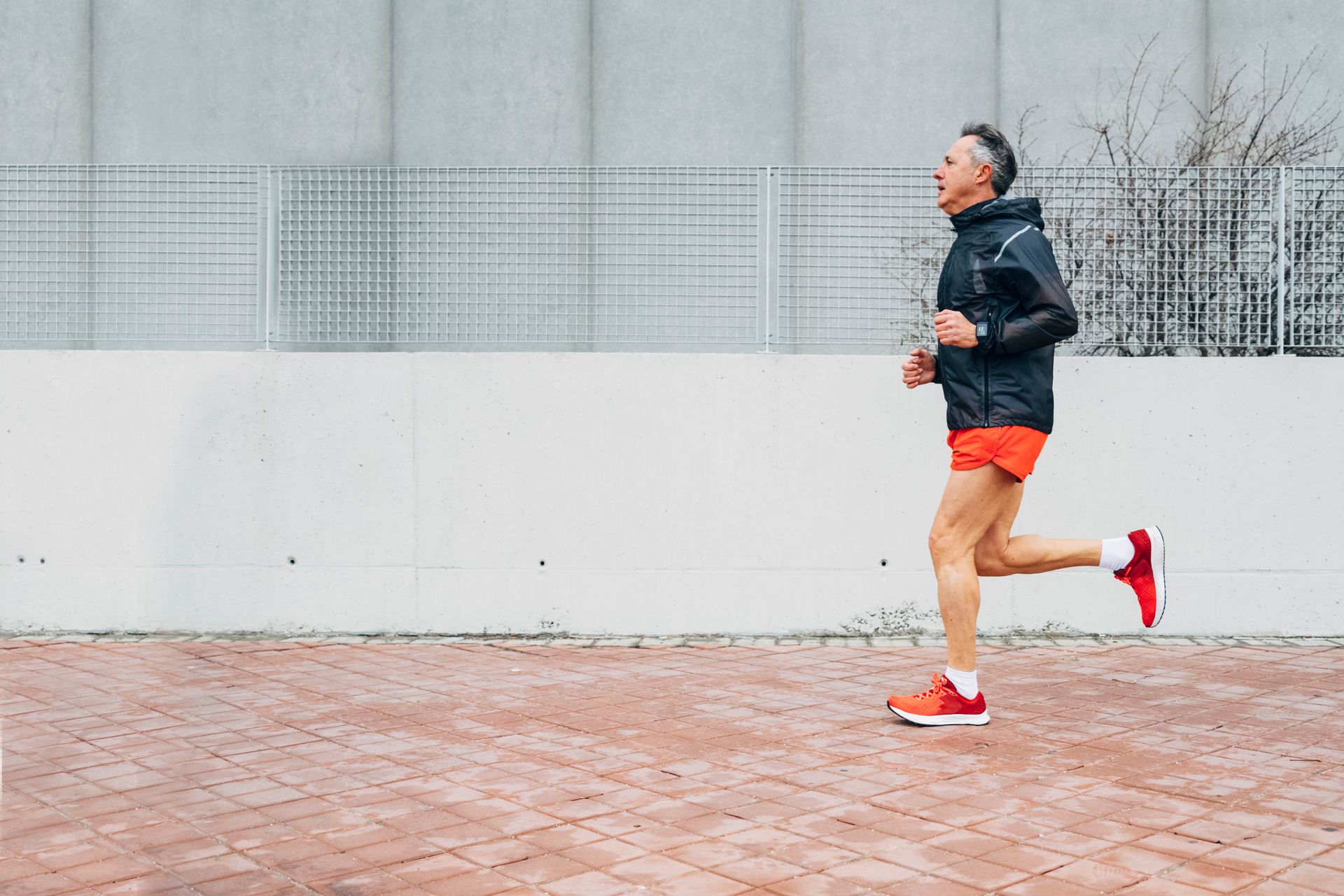
One of the best forms of exercise for elderly people is running. Although running is considered to be a high-impact exercise, it is still safe for seniors provided that they take the necessary precautions. Among any other physical activity, running can improve strength, balance, joint flexibility, endurance and even mental health in elderly people. What's more, it helps boost energy levels and even contributes to a longer life span.
Top benefits of running for seniors
Running offers numerous benefits to seniors, especially to those who are trying to stay active on a regular basis. Here are some of the top benefits of running for seniors:
Strong Bones, Muscles, and Joints
As seniors age, it's common for them to experience a natural decline in their bone density and muscle mass. But by engaging in physical activity, it is possible to restore the bone density loss. When they run or perform muscle strength training, the muscles involved in their movement continuously exert force on their bones. This stress directly contributes to an increase in bone density which is an occurrence explained by Wolff's Law.
Therefore we can say that running, strength training, and weight-bearing exercises play a significant role in increasing bone density and reducing the risk of falls, particularly for older runners with osteoporosis. However, those who have already been diagnosed with thinning bones should consult with their doctors regarding the types of physical activity that are safe for them.
Improves Cardiovascular System
Running is basically a cardiovascular exercise that elevates one's heart rate and improves one's blood flow, enabling the brain, muscles, and organs to receive an increased supply of oxygen. While running, our heart rate basically rises as it pumps large quantities of blood and oxygen to the active muscles.
According to Robert Standley, PhD, a principal scientist in clinical research for Abbott's vascular business, who is also a marathon runner, this heightened activity and improved blood flow can enhance heart efficiency over time. Not only does it help alleviate fatigue and breathlessness but this boost in blood flow potentially decreases resting heart rate and lowers blood pressure levels, leading to an enhanced overall performance of daily activities.
Enhances Balance and Coordination
For elderly people who have mobility issues, running can help enhance their balance and coordination. Engaging in running activities can have a significant impact in enhancing bone density and muscle mass, which are vital for maintaining one's stability and walking ability as well as preventing them from experiencing injuries and falls.
While running can improve their physical health by strengthening the muscles, joints and ligaments, it is also important for them to stay safe. A personal alarm like LifeGuard SmartTracker is a helpful tool that allows seniors to alert someone if they find themselves in a dangerous or uncomfortable situation. With its emergency alarm button, GPS tracking, and fall detection features, they can ensure that help is on the way in the event of an emergency. Surely, it's a must-have for seniors who want to stay safe while on a jog or run.
Healthy Body Weight
As older adults continue to age, it's common for them to experience weight gain, especially since their bodies' metabolism slows down. This can increase their risk of acquiring various health conditions such as heart disease, high blood pressure, stroke, and diabetes. Fortunately, a running routine can be beneficial when trying to manage their weight and boost their metabolism.
As their activity levels increase and their fitness improves, a metabolic transformation occurs. Lean tissue replaces excess body fat, improving their overall health performance and metabolic burn.
Boosts Cognitive Function
Engaging in exercise such as running is recognised for offering a multitude of cognitive advantages to seniors, particularly when it comes to memory and learning. One potential connection between them is the process of exercise-induced neurogenesis, which involves the production of new neurons and their integration into the neural circuits.
In some studies, it was found that consistent exercise has increased the size of the hippocampus, which is the part of the brain involved with memory. This results in improved memory and focus among older adults.
When they exercise, their brains experience an anti-depressive effect that helps reduce their stress and in return, improves their moods. Thus, it may improve the brain's overall function and prevent cognitive decline.
Reduces Stress and Anxiety
Regardless of age, our brain also depends on exercise to maintain its mental fitness and functionality. Exercises like running increase blood flow to the brain and trigger the release of dopamine and endorphins, which are chemicals in the body that relieve pain naturally.
These effects can significantly contribute to immediate and long-term benefits, such as reduced stress and anxiety, improved mood, enhanced memory, increased focus, and better mental health. You don't need to be a marathon runner in order to enjoy the neurological benefits of running, all it requires is to consistently do running routines to maximise a greater extent of these benefits.
Promotes Longer Life
Running and other forms of physical activity such as jogging, brisk walking, and the like generally provide lots of health benefits to elderly individuals. Not only is running for seniors one of the best ways to boost the immune system, stay active, and be in good shape but it can also reduce the risk of developing certain diseases and chronic conditions. Through a regular exercise routine, elderly people can improve their overall health and significantly prolong their lifespan.
How often should seniors run?
Keep in mind that not all seniors have the same pace, physical condition, and agility. Therefore, they should adjust their running program accordingly. Depending on the person's capacity and health condition, a senior can typically perform:
- moderate-intensity activities such as brisk walking for at least 150 minutes a week
- vigorous-intensity activities such as jogging, running, and hiking for at least 75 minutes a week
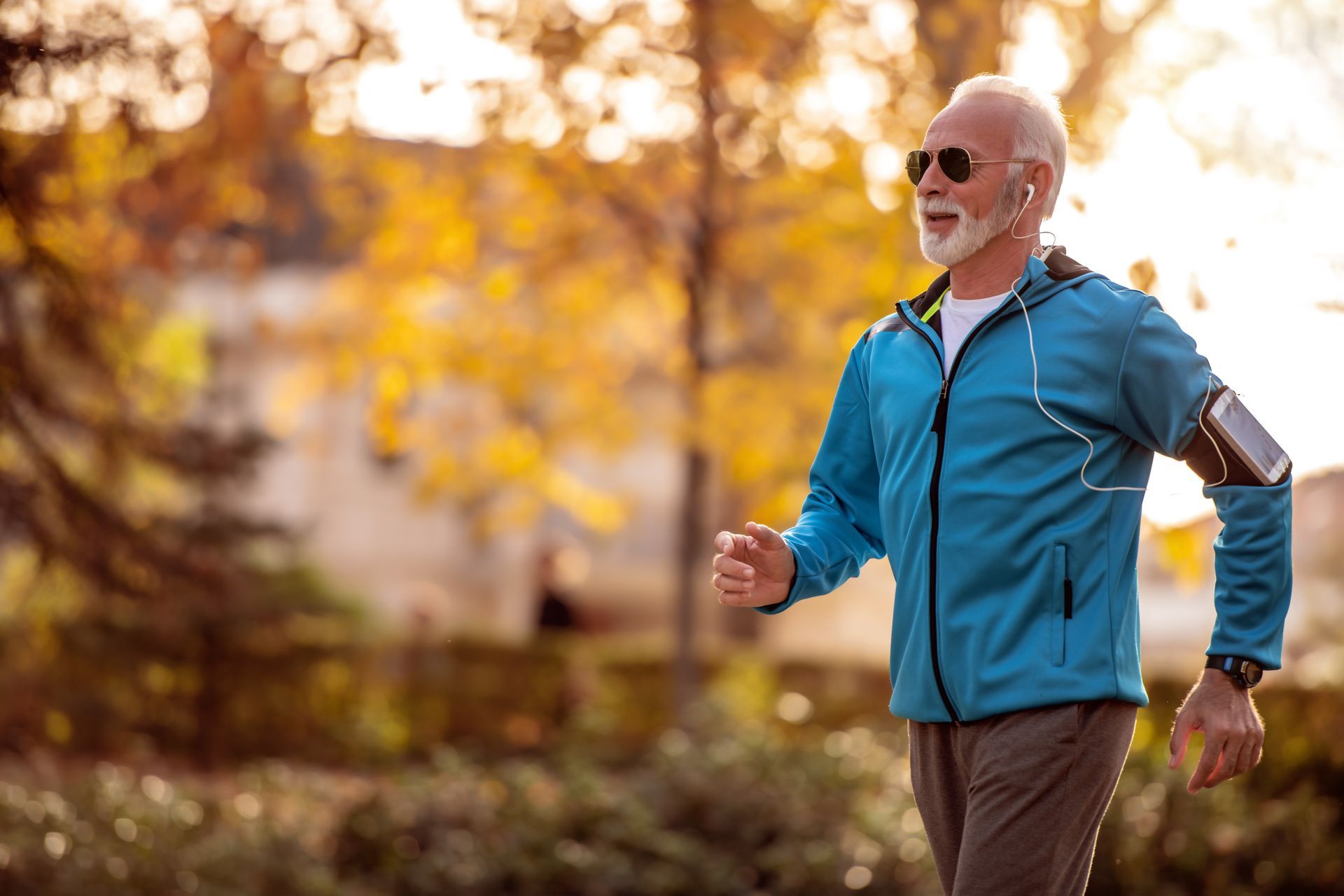
For older runners aiming for muscle strength, they can perform these activities at least 2 days a week.
How to start running at an older age?
There are various ways to get started at running even though you're over 65 years old.
Get Checked First
Before getting involved with any physical activity, you must consult with your doctor first on which kind of activities are you allowed to do. Ask for medical advice and if you have underlying conditions, get checked first to ensure that you won't risk your health by doing such activities.
Join local running groups
If you have no idea where to start, one of the best ways to do it is to join a running program or community groups with your specific interest. Local running groups consist of beginners as well as experienced runners who can help motivate you in your running journey. By joining these groups, you can even meet a running buddy and build a network of like-minded senior runners who can help improve your overall health while having fun.
Wear the Right Outfit and Gear
Wearing the right type of clothing and pair of running shoes is essential if you want to avoid injuries, improve performance, and increase comfort while on your run. Make sure to look for running shoes with cushioning that provides support and stability. Look for a running store that offers a variety of items for all ages so you can find the perfect fit for you.
Bring Personal Safety Alarms
To ensure your safety while you are outdoors, it is recommended that you carry a personal alarm with you at all times. For older runners, there are wearable devices such as a medical alert necklace that you can take with you wherever you go.
This device alerts a nurse or a health professionals from the Emergency Response Centre in case an accident or medical emergency occurs. A medical alert necklace is equipped with a range of features to ensure that help is available as soon as possible.
Start Slow
You don't need to run immediately to get started. Sometimes all you need to do is to start slow before you can build up your speed and endurance. Begin with a brisk walk or take breaks in between running intervals while you are still working with your stamina. This way, you won't be putting too much strain on your body and still get the benefits of running.
Get plenty of rest
Seniors often have a slower metabolism than anyone else, which means that their body cell renewal and regeneration process is slower. For elderly individuals to recover after each run, it's crucial for them to relax and get plenty of rest before they start their next session. Make sure you they have a proper amount of rest in between each run for better running performance and to help the body rejuvenate easily.
What is a good running pace for older adults?
Several factors influence a person's running speed. Aside from fitness levels, age and sex play a role in determining how fast an older adult can run. While most runners can reach their fastest pace between ages 18 to 30 years old, seniors ages 65 years old and above are often much slower.
Generally, an easy pace for seniors should be around a 15-minute kilometre or lower. Research suggests that for senior beginner runners aged 65 years old and above, the average running pace for men is 8:37 per kilometre , while the average running pace for women is 10:04 minutes per kilometre.
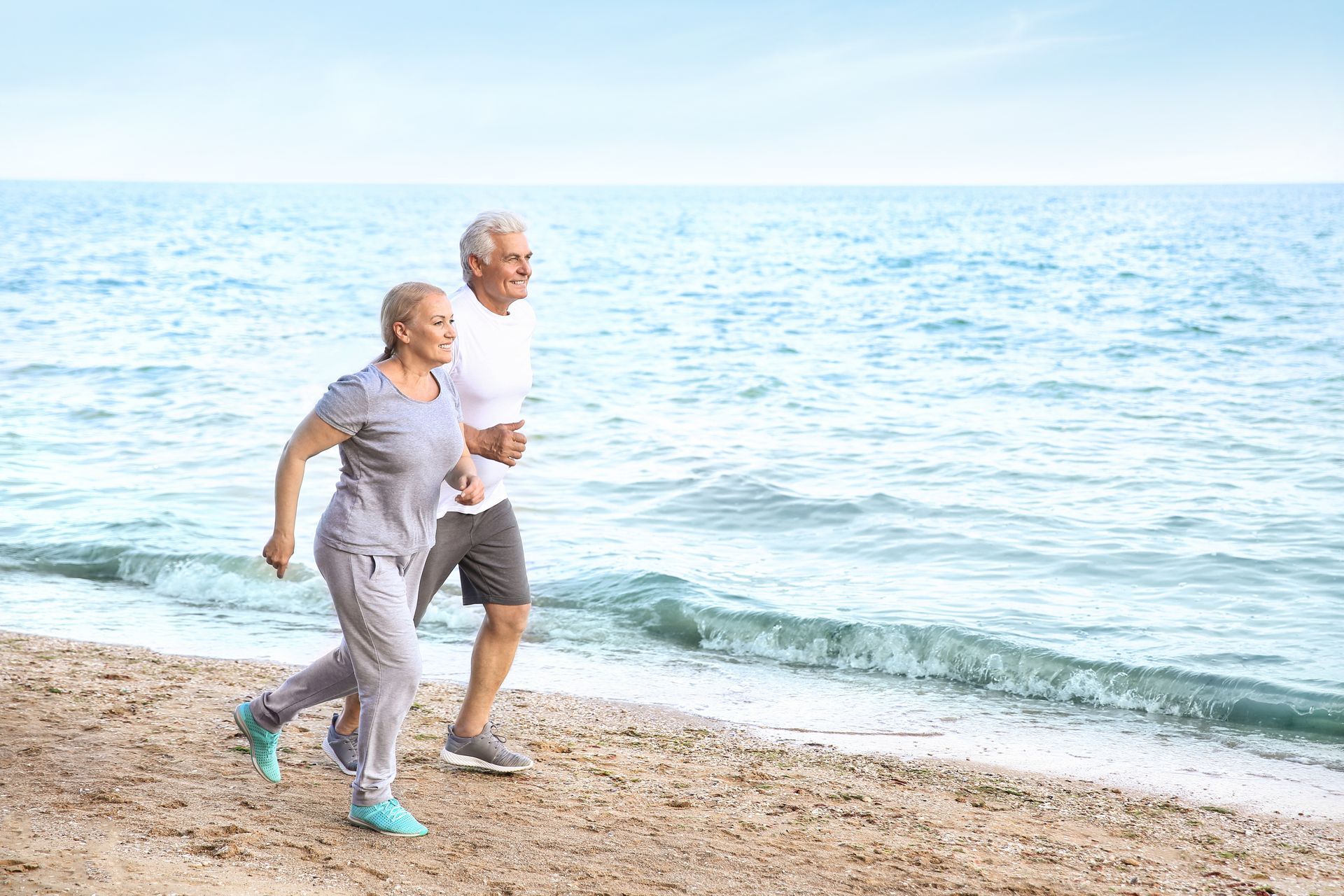
Takeaway
Despite the misconceptions about running for seniors, it actually provides numerous health benefits to them. In fact, running on a regular basis can have a transformative impact on their physical, mental, and emotional well-being.
Above all, running improves cardiovascular health by strengthening the muscles, enhancing bone density, and reducing the risk of chronic illnesses like heart disease, diabetes, and osteoporosis. Furthermore, running also promotes weight management, stress relief, and cognitive function.
But beyond the physical and cognitive benefits, running also offers emotional and social advantages for seniors. By actively participating in running programs, seniors can build connections with like-minded individuals and take advantage of opportunities for social interaction, support, and motivation.
Indeed, the benefits of running for seniors extend far beyond physical fitness and health. Running truly provides a gateway to a healthier, more fulfilling, and active lifestyle for seniors, enabling them to age gracefully and enjoy a higher quality of life.

About
INS LifeGuard is the only 24/7 nurse on-call personal and medical monitoring in Australia. We provide monitoring technology for both in the home and on the go and can also monitor other provider's equipment. Our services are suitable for anyone wanting support to stay independent such as the elderly, those with medical conditions and disabilities plus enhancing safety and security for lone workers.
